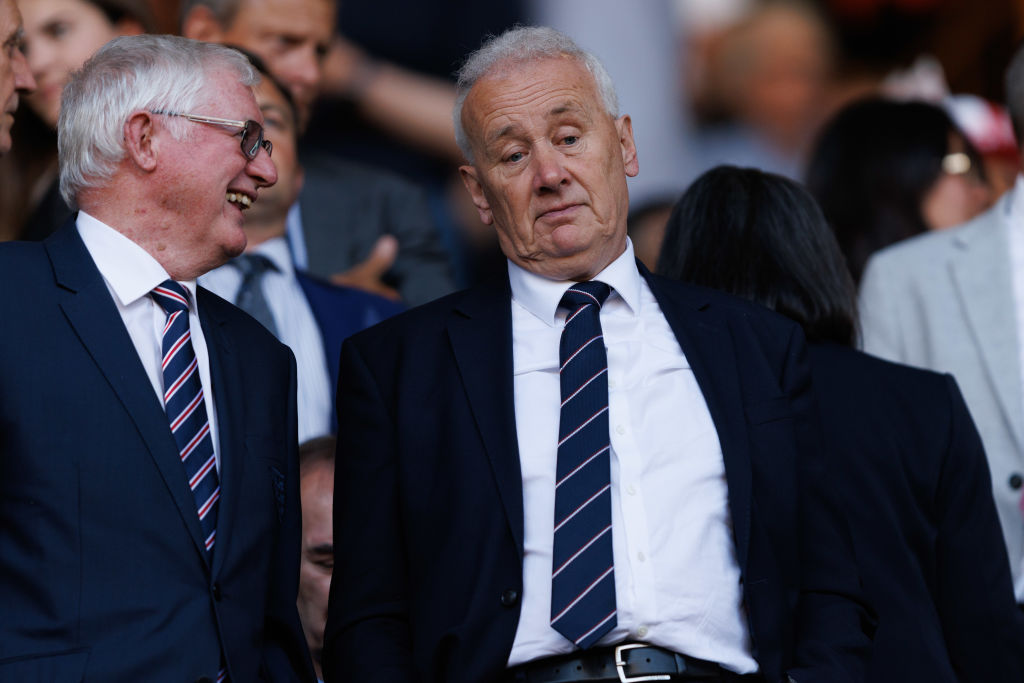
Don’t let anyone tell you that football fans are customers. They are not. If a football fan doesn’t like the service their local supermarket is providing, if the quality dips, if prices become too high, if controversial owners take it over, they can shop elsewhere.
If their favourite football team start playing poorly, if they hike up ticket prices, if they’re taken over by questionable owners, in theory they could start supporting another team. But in reality, football fandom doesn’t really work like that. It’s culturally different.
In the same way the National Trust can’t turn its properties into nightclubs, hotels, and restaurants, football club owners shouldn’t be allowed to make sweeping changes that disrespect the heritage of a football club, or put it at risk of existence.

Presently, the Premier League is self-governed by clubs who occupy the 20 positions within the division. Motions are put to the 20 stakeholders and if 14 or more vote in favour, motions are passed. Say if, in the future, 14 of the 20 clubs are owned by Americans. They could in theory vote to do away with relegation to the EFL.
In recent years the Premier League meetings have descended into civil war. Last year, halfway through the season, clubs voted to change the rule on associated party sponsorship deals to stop one club from using this to its advantage. A regulator will bring more order to this makeshift approach.
This week Culture Secretary, Lucy Fraser, explained that legislation introduced in Parliament to establish an Independent Football Regulator will “put fans back at the heart of the game”. The regulator will be “equipped with robust powers revolving around three core objectives: to improve the financial sustainability of clubs, ensure financial resilience across the leagues, and to safeguard the heritage of English football”.

Just as the Bosman Rule changed football forever, and handed power to players, an Independent Football Regulator will hand power to the game’s lifeblood: its fans. Whether this turns out to be a positive or negative for football, or as the Bosman Rule turned out to be, a mix of the two, it is undoubtedly a positive for fans concerned about decisions being made at the highest level.
Kevin Miles, Chief Executive of the Football Supporter Association, was in Whitehall on Tuesday to meet with the All-Party Parliamentary Group for football supporters, and the Minister for Sport to discuss the 130-page bill. “It's got cross-party support,” said Miles, speaking to the BBC. “It's pretty much definitely going to become law over the course of the next few months.”
One of the key changes a regulator will bring is a licencing system for all clubs in the top five tiers. Any club that wants to operate in English football will need to obtain a licence from the regulator. As part of the conditions, they will be required to demonstrate they have proper structures in place for genuine fan engagement.

This means fans will have to sign off on changes to things like club colours, club badges, playing names etc. A shadow board of elected fan representatives will need to be created, and many clubs have already set these up in anticipation of the bill being passed.
A club’s business plans, proposals, and financial situation will have to be shared with that board. A more rigorous owners and directors test will be introduced to ensure questionable owners aren’t allowed to take over clubs.
“There's been far too many people who are just coming in and asset stripping,” says Miles, “running a club into the ground, loading debt onto the club for their own benefit. If there’s resistance from the Premier League, I think their argument is pretty spurious.
“There's nothing in that bill that stops the Premier League remaining the most successful league in the world, and there's nothing in that bill that a good owner of a club would need to have the slightest thing to worry about”.

The bill could also be good news for fans of clubs lower down the pyramid, with EFL Chairman Rick Parry expected to use the regulator to leverage better distribution of money down the leagues. Whether that proves to be a positive change, time will tell. I believe it will be, especially given that the regulator will be in operation across the top five tiers of English men’s football and have a real-time overview of how clubs are operating.
Crucially, it appears the regulator will have genuine power to act if a club steps out of line. A fine of up to 10% of a club’s annual turnover can be applied. That would equate to £55.5 million based on Manchester United’s 2022 figures, far from an insignificant amount.
The ultimate sanction would be the revoking of the licence to play football. Sadly, abuse of power at certain clubs has meant that some fans have woken up to the news that their team has ceased operating as a going concern, and therefore stopped playing. The regulator should prevent this.
The bill seems to have approval from those inside Parliament, and public support has been strong. Dissenting voices have been limited to a handful of owners and pundits. Two of those have been Simon Jordan and David Sullivan which only serves to reinforce my belief that it will be a force for good in the English game.
More stories
Former Chelsea manager in line to replace Thomas Tuchel at Bayern Munich: report
Manchester United to get rid of key player for FREE - as Sir Jim Ratcliffe plans squad overhaul: report
The Nigeria 2024 away kit might just be Nike's best design yet







